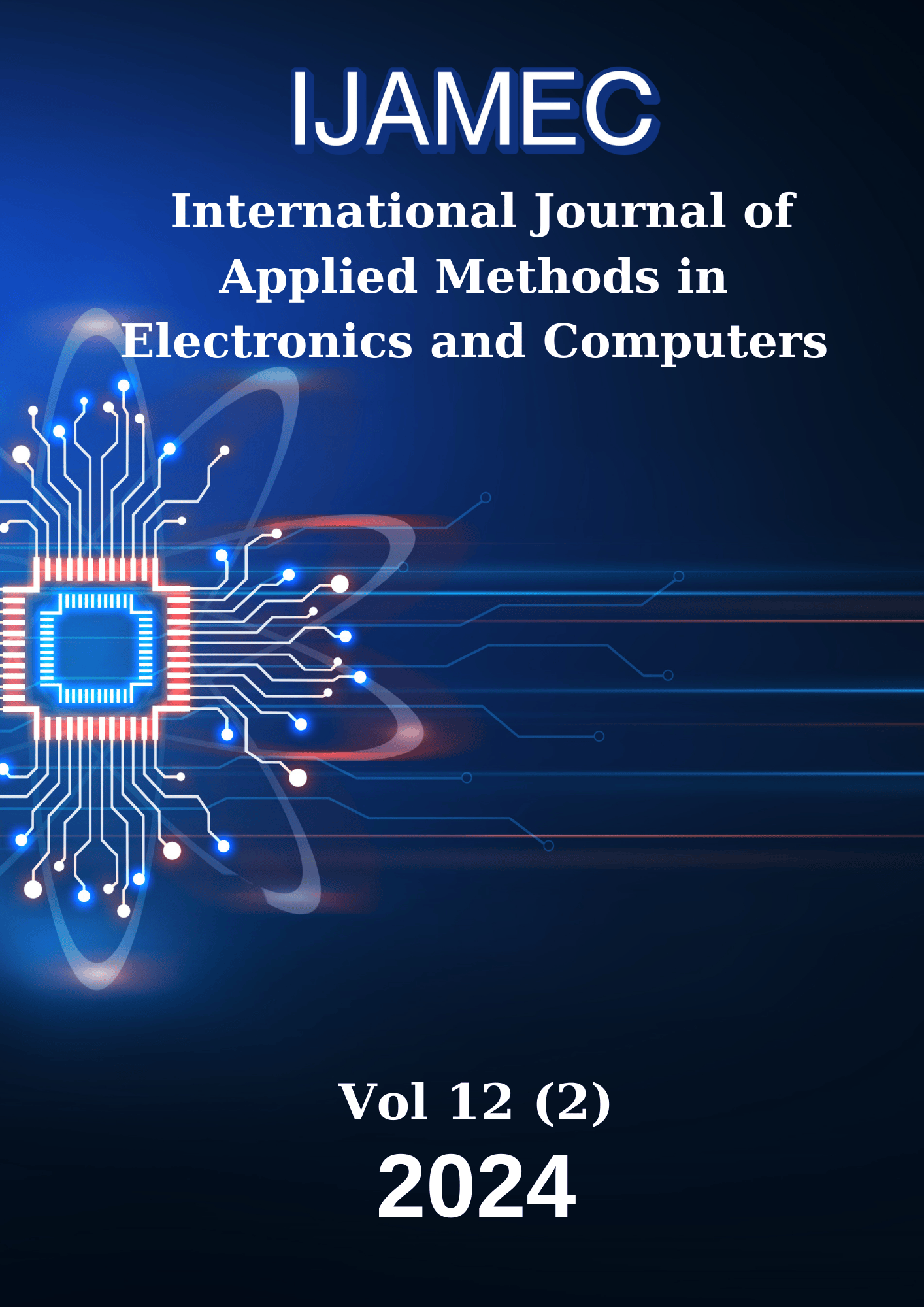Enhancing Travel Experience: Predicting Flight Delays for Informed Journey Planning
DOI:
https://doi.org/10.58190/ijamec.2024.96Keywords:
Classification, Flight Delay Prediction, Flight Recommendation, L-GBM, Machine LearningAbstract
Flight delays pose significant inconveniences for travelers, potentially causing missed connections, schedule adjustments, and time wastage. This study presents a machine-learning driven approach to mitigate these challenges by developing an application that predicts flight delays, empowering passengers with insights to minimize travel disruptions. Leveraging diverse machine learning algorithms and datasets from the United States Department of Transportation and the National Oceanic and Atmospheric Administration Service, our model aids travelers in making informed decisions by suggesting optimal flight times and carriers based on historical flight data and weather conditions. Addressing the issue of imbalanced data, we explore techniques such as Synthetic Minority Over-sampling Technique (SMOTE) and under-sampling. Our comparative analysis highlights the superior performance of Light Gradient Boosting Machine (L-GBM) in predicting flight delays. With an F1-score of and an AUC value of , our study offers a promising solution to enhance passenger experiences through improved flight recommendations.
Downloads
References
L. Belcastro, F. Marozzo, D. Talia, and P. Trunfio, “Using Scalable Data Mining for Predicting Flight Delays,” ACM Transactions on Intelligent Systems and Technology, vol. 8, no. 1, pp. 1–20, Oct. 2016, doi: https://doi.org/10.1145/2888402.
Lambelho, M., Mitici, M., Pickup, S., & Marsden, A. (2020). Assessing strategic flight schedules at an airport using machine learning-based flight delay and cancellation predictions. Journal of air transport management, 82, 101737.
S. Choi, Y. J. Kim, S. Briceno, and D. Mavris, “Prediction of weather-induced airline delays based on machine learning algorithms,” 2016 IEEE/AIAA 35th Digital Avionics Systems Conference (DASC), Sep. 2016, doi: https://doi.org/10.1109/dasc.2016.7777956.
Y. Ding, “Predicting flight delay based on multiple linear regression,” IOP Conference Series: Earth and Environmental Science, vol. 81, p. 012198, Aug. 2017, doi: https://doi.org/10.1088/1755-1315/81/1/012198.
R. Henriques and I. Feiteira, “Predictive Modelling: Flight Delays and Associated Factors, Hartsfield–Jackson Atlanta International Airport,” Procedia Computer Science, vol. 138, pp. 638–645, 2018, doi: https://doi.org/10.1016/j.procs.2018.10.085.
R. Musaddi, A. Jaiswal, and M. Girdonia, “Flight Delay Prediction using Binary Classification,” International Journal of Emerging Technologies in Engineering Research (IJETER), vol. 6, 2018, Accessed: Oct. 28, 2023. [Online]. Available: https://www.ijeter.everscience.org/Manuscripts/Volume-6/Issue-10/Vol-6-issue-10-M-09.pdf
Esmaeilzadeh, E., & Mokhtarimousavi, S. (2020). Machine learning approach for flight departure delay prediction and analysis. Transportation Research Record, 2674(8), 145-159.
G. Ke et al., “LightGBM: A Highly Efficient Gradient Boosting Decision Tree,” Advances in Neural Information Processing Systems, vol. 30, 2017, Available: https://proceedings.neurips.cc/paper/2017/hash/6449f44a102fde848669bdd9eb6b76fa-Abstract.html
A. Fernandez, S. Garcia, F. Herrera, and N. V. Chawla, “SMOTE for Learning from Imbalanced Data: Progress and Challenges, Marking the 15-year Anniversary,” Journal of Artificial Intelligence Research, vol. 61, pp. 863–905, Apr. 2018, doi: https://doi.org/10.1613/jair.1.11192.
Bureau of Transportation Statistics. “On-Time : Marketing Carrier On-Time Performance (Beginning January 2018)” Available: https://www.transtats.bts.gov/DL_SelectFields.aspx?gnoyr_VQ=FGK&QO_fu146_anzr=b0-gvzr (accessed Oct. 28, 2023).
National Oceanic and Atmospheric Administration. “Global Hourly Weather Data - 2022.” Available: https://www.ncei.noaa.gov/data/global-hourly/access/2022 (accessed Oct. 28, 2023)
Downloads
Published
Issue
Section
License
Copyright (c) 2024 International Journal of Applied Methods in Electronics and Computers

This work is licensed under a Creative Commons Attribution-ShareAlike 4.0 International License.





